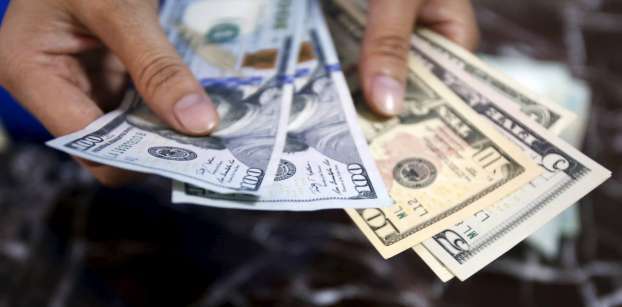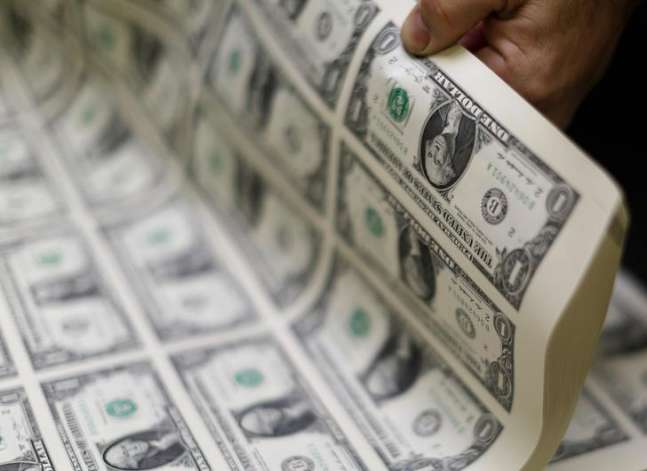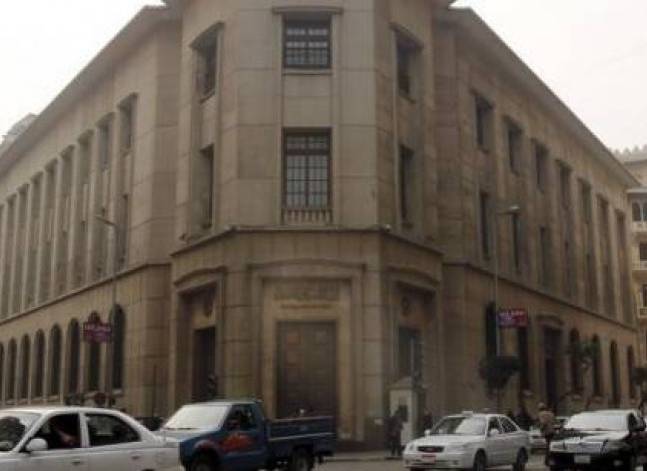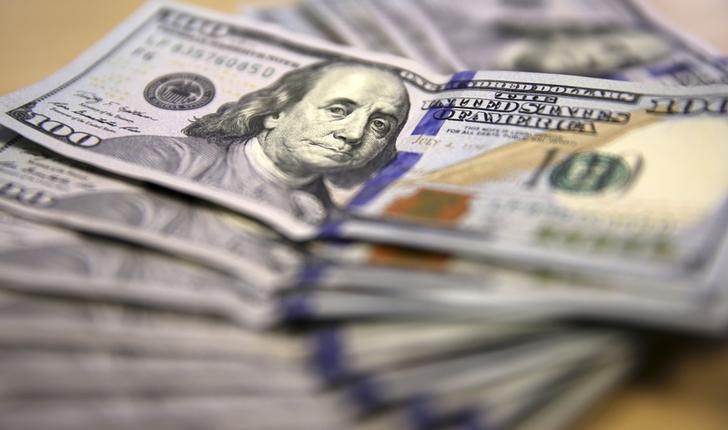Latest NEWS
- Aswat Masriya, the last word
- Roundup of Egypt's press headlines on March 15, 2017
- Roundup of Egypt's press headlines on March 14, 2017
- Former Egyptian President Hosni Mubarak to be released: lawyer
- Roundup of Egypt's press headlines on March 13, 2017
- Egypt's capital set to grow by half a million in 2017
- Egypt's wheat reserves to double with start of harvest -supply min
- Roundup of Egypt's press headlines on March 12, 2017
Foreign investors optimistic about Egyptian pound devaluation
CAIRO, Mar 14 (Aswat Masriya) - Egypt's main stock market index EGX 30 surged by 6.7 per cent on Monday, after Egypt's central bank devalued the Egyptian pound to 8.85 per dollar, down from EGP 7.73.
The Central Bank of Egypt (CBE) devalued the Egyptian pound by 14.5 per cent (EGP 1.12), the first time for it to depreciate the pound since Governor Tarek Amer took office last November.
The dollar's exchange rate in Egyptian banks accordingly hiked to EGP 8.95 per dollar, as the CBE allows banks to sell dollars at 10 piastres below or above the original value.
The course's benchmark index EGX 30 reached 7,003.85 points at closing, triggered by foreign investors' purchases. Foreign investors made net purchases of EGP 26.8 million, while Egyptian and Arab investors recorded sales of EGP 22.6 and EGP 4.2 million
Sales Director at Pharos Holding, Mohamed Radwan, attributed the market's upsurge to the foreign investors' optimism prompted by the devaluation of the pound as they have been long calling for this measure to be taken.
The bourse halted trade on 45 stocks for more than 30 minutes as their values rose by a margin exceeding 5 per cent.
Investors in the stock market and government bonds have endured the risks of a fluctuating Egyptian pound in the aftermath of the 2011 January uprising and the successive declines in foreign currency reserves.
According to CBE statements, the governor's net investments in Egypt including stocks and bonds declined from $7.8 million to $2.5 million between the years of 2009-2010 and 2010-2011. Investments reached $638.6 million in 2014-2015.
The central bank's governor, Amer, said on Monday that he was looking into a mechanism that would lower the risks associated with a fluctuating currency for foreign investors when it comes to investments in governmental debt instruments including bonds and treasury bills.
Bloomberg reported Mashreq Capital's CEO Abdel Qader Hussein saying that the devaluation of the pound cancels the idea of floating, which was perceived as a heavy load, and added that the move "reopens Egypt" for investors.
The percentage of foreign investors holding treasury bills significantly declined from 25 per cent before the 2011 uprising to less than 1 per cent in 2014/2015, according to CBE statements.
However, BNP Paribas considered it unlikely that the new exchange rate would attract huge foreign investments as the currency remains overvalued compared to other currencies of developing markets.
The French bank saw that the CBE's talk about adopting a "flexible" exchange rate regime means that there will be more fluctuations and movements in the exchange rate.
The CBE announced Monday that it has devised a "comprehensive plan" to correct the monetary market conditions, to be premised on a "more flexible" exchange rate system. This is in order to restore the circulation of foreign currency within the banking system on a regular and sustainable basis.
The CBE expects that its current policies would lead the Egyptian pound to reflect its true value within a "short period of time".
"We think that the Egyptian pound might require additional devaluation, as it needs to change hands at EGP 9.5 per dollar to restore Egypt's ability to compete internationally," Jason Tuvey of Capital Economics told Reuters.















